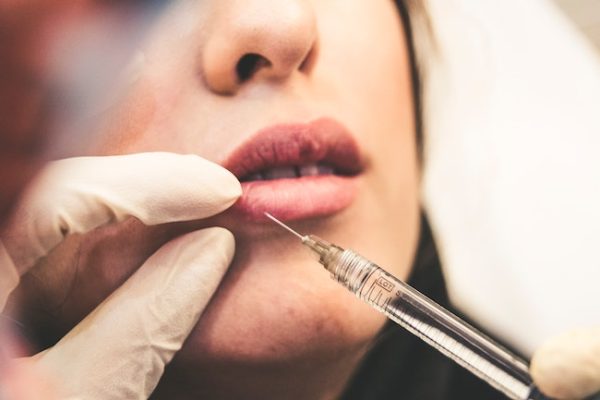
Fillers and Botox can reduce lines and wrinkles and help to contour your face, for a fresher and more youthful appearance. With treatment time typically only taking around 30 to 45 minutes and no downtime, these aesthetic injectable treatments can make a remarkable difference. They also offer an alternative to more invasive and risky cosmetic surgery.
After you have invested in Botox or dermal fillers there are several ways you can ensure you get the best possible results from these treatments. Your practitioner should provide Botox and filler aftercare advice and it is essential to follow this. If there is anything you don’t understand, ask for clarification. It is also very important to know the possible risks and complications associated with fillers and Botox so that you can seek advice if you notice anything that could be serious.
In this post, we cover treatment aftercare and the key things you should and shouldn’t do after a Botox or filler treatment. This information is simply generic guidance. There are various types of fillers and aftercare guidelines can differ. This is why you should always adhere to the aftercare instructions you have been provided with by your aesthetic practitioner.
Bruising and swelling are two common temporary side effects that may occur after fillers and Botox injections. The week before injectable aesthetic treatments, you should avoid aspirin and non-steroidal anti-inflammatory drugs (NSAIDs), vitamin E, fish oil, and ginseng, as all of these can increase the risk of bruising. If you take medications for a medical condition speak with your doctor to check if it is safe to stop taking them.
When you go home after your treatment, there are some key ways to reduce bruising and swelling following dermal fillers and Botox. Below is the advice we provide our clients at Harley Street MD aesthetic clinic in London.
• Wrap ice in a clean dry flannel and apply gently onto the treatment area for approximately 10 minutes. Repeat every 30 minutes for the first four hours after injections.
• Drink plenty of water.
• Sleep on your back for the first 48 hours, with your head elevated with a couple of pillows.
• Do not apply ice directly to the skin.
• Avoid bending over and lying down for four hours.
• Do not do any strenuous exercise for 24 hours.
• Avoid hot tubs and saunas for 24 hours.
• Don’t go swimming for 24 hours.
• Do not have hot showers or baths for 24 hours (lukewarm is fine).
• Abstain from drinking alcohol and caffeinated drinks for 24 hours.
• Wait 24 hours before applying any skincare products or makeup.
• Avoid heat lamps or tanning beds for 72 hours.
• Don’t take aspirin and non-steroidal anti-inflammatory drugs (NSAIDs), vitamin E, fish oil, and ginseng for 72 hours.
• Wait for two weeks before having any treatments such as facials, eyebrow threading, microneedling, and Intense Pulsed Light (IPL) or laser treatments.
• Unless instructed do not touch or massage the treated area for 24 hours.
Serious risks and complications are rare and fillers and Botox are both safe with low rates of adverse effects. However, if you experience increased swelling, redness, or pain 24 hours after treatment call your aesthetic practitioner.
You should seek immediate medical treatment if you experience:
• Difficulty breathing or swallowing
• Changes in your vision
• Bladder control problems
• Blue or purple tinge to skin colour
• Severe pain
• Skin looking very pale in the treated area
Q. How long do fillers take to settle?
A. Dermal fillers normally settle in within 72 hours, however, small lumps may take up to up to two weeks to completely disappear.
Q. When can I sleep on my side after fillers and Botox?
A. Avoid sleeping on your side for the first 48 hours.
Q. When can I shower after fillers and Botox?
A. You should wait for a minimum of four hours and the water should be lukewarm. Do not use facial products or touch or rub the treated area.
Q. Can I drink coffee after fillers and Botox?
A. You should avoid coffee and other caffeinated drinks for 24 hours.
Q. Should I massage lumps after fillers?
A. Follow the advice of your aesthetic practitioner.







